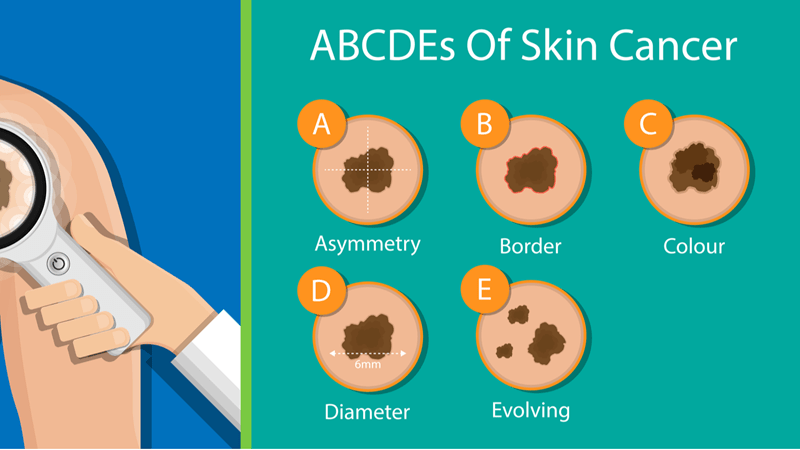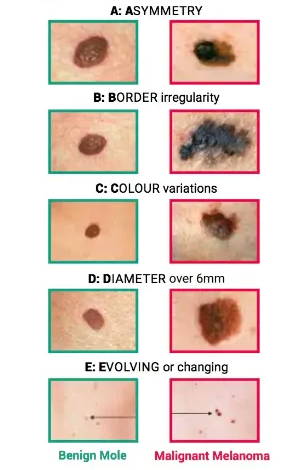
A squamous cell carcinoma is an irregular growth of the skin that may develop into a cancer. The tumor typically appears as a pink bump that may have notched or fading borders. The appearance of the tumor is irregular and may contain several shades of brown and black. During the first few weeks, patients often mistake these cancers for normal bumps or bug bites. Fortunately, increased awareness about skin cancer has led to earlier diagnosis and treatment.
The most common type of skin cancer is basal cell carcinoma. It is an abnormal growth arising from the outer layer of the skin and the basal cells. Most cases of skin cancer involve the face, ears, neck, scalp, and other areas that are exposed to sunlight. Because of their vulnerability to ultraviolet rays, basal cell carcinoma is the most common type of skin cancer. There are several different types of cancer that can be diagnosed.
Melanoma is a potentially aggressive form of skin cancer. It begins in the basal cells of the skin. In most cases, the disease occurs on areas of the body that are frequently exposed to sunlight, such as the face, neck, shoulders, and hips. However, it can also start in mucus linings, eyelids, and mucus glands. To learn more about the causes of this deadly type of cancer, contact your physician today.
Radiation therapy is an alternative treatment for skin cancer. This form of treatment is most commonly used in older adults and may not be as effective in younger people. It may be an effective treatment for shallow skin cancers, but should be used with caution. It may result in the development of other forms of skin cancer. So, when should you be concerned about your skin? You can start by learning about your risk factors for skin cancer and how to prevent it.
It is important to understand the different types of skin cancer. You should never be afraid to go out and get a tan. While you are at risk for certain types of cancer, it is possible to protect yourself against the sun’s ultraviolet rays. The sun’s rays are the main cause of skin cancer, and the most common type is overexposure to sunlight. If you are exposed to the sun too much, your risk of developing this type of cancer increases dramatically.

If you have melanoma, the most likely treatment option is surgery. There are two types of skin cancer: basal cell carcinoma and squamous cell carcinoma. The former is more common and more likely to spread than the latter. Both of these types of cancer can spread to other parts of the body. If the cancer has spread, it will most likely be fatal. Although there are some treatments for skin cancer, the best prevention is to avoid sunburn and take precautions against UV radiation.
There are several types of skin cancer. Most of these are basal cell carcinomas that develop in areas exposed to the sun. The top two layers of skin are made up of dead cells and filled with keratinocytes, which help make skin strong and supple. Squamous cell carcinoma develops from keratinocytes in the epidermis, which is a cell layer just above the basal layer.
While most skin cancers are treatable, some types can be difficult to treat. In some cases, cancer is resistant to standard treatments. This means that it can grow in the affected area until the cancer is healed. In some cases, there is a high chance of recurrence, so it is important to seek treatment immediately. A patient with melanoma should be immediately examined and biopsied.
Your doctor may recommend a biopsy of the suspicious area of skin. The doctor will remove the suspicious growth, leaving a patch of healthy skin tissue. This is one of the most common treatments for skin cancer. It can be successfully cured if detected in time and properly treated. There are several treatment options for the condition, depending on the type of disease, the site says Sarjana. It can be removed surgically or treated with oral medications.

